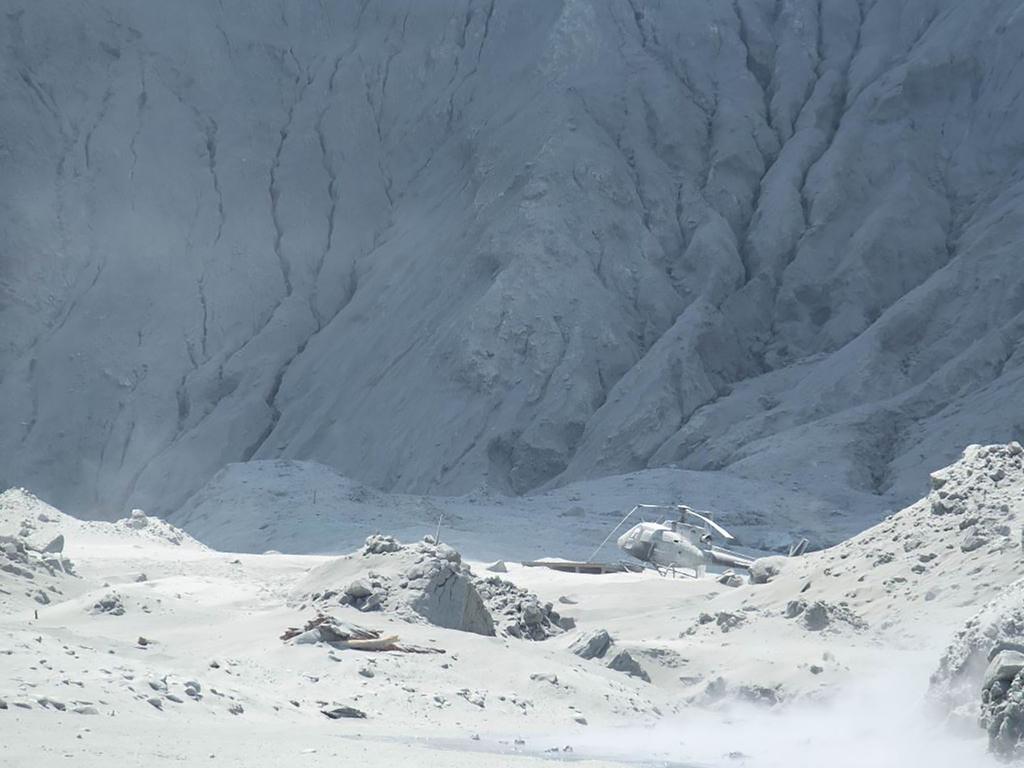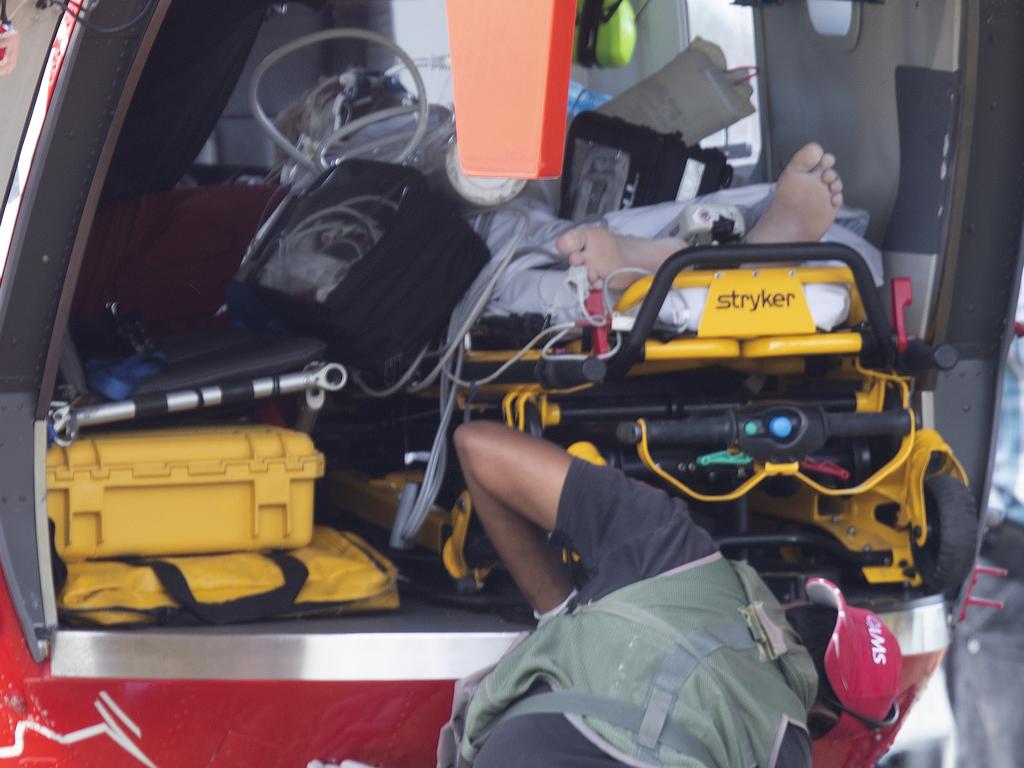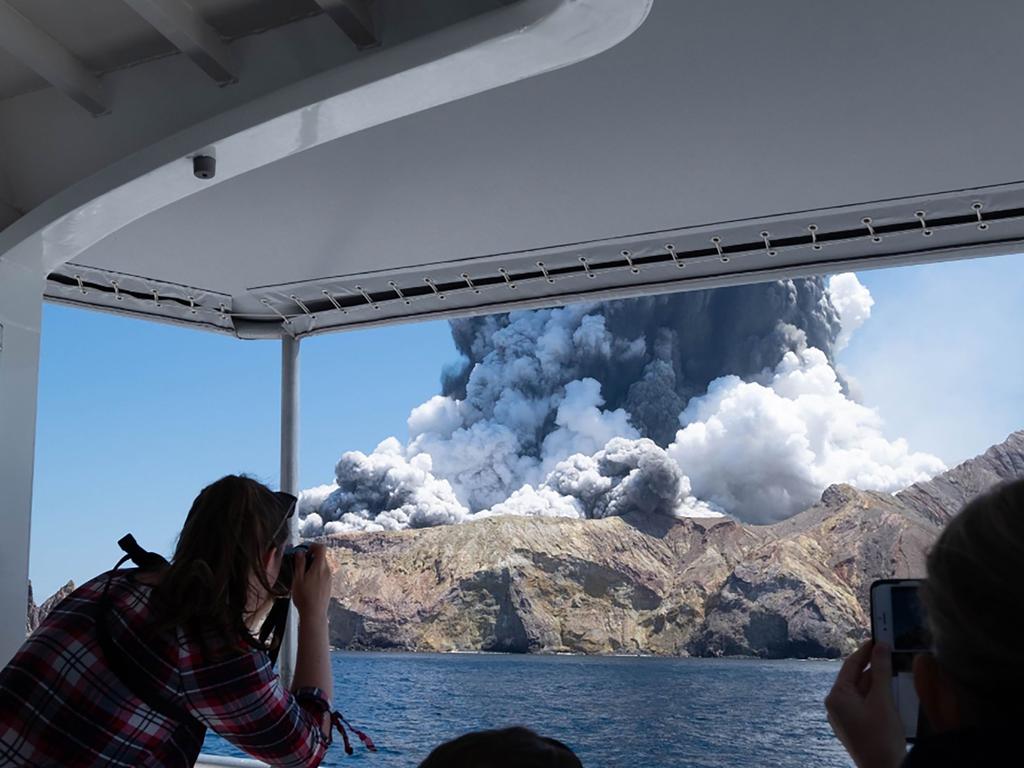Scientists describe White Island eruption as ‘basically instantaneous’
The volcanic eruption on a remote island would have occurred in a split second, scientists say, as a survivor of another volcanic eruption in NZ speaks out.
A volcanologist has described the quick-fire type of eruption at White Island on Monday as “basically instantaneous”.
“One minute nothing’s happening, next minute, it’s all happening,” GNS Science’s Brad Scott said.
At about 2.11pm, the eruption fired a plume of ash 3.6km above the vent of the offshore Bay of Plenty volcano. NZ police have revealed the explosion left no survivors, with at least five confirmed dead and the true number of fatalaties unknown.
The island’s crater floor was littered with ash, which continued to fall on the island – but only a minor amount of the material was expected to reach New Zealand’s East Cape over the next few hours. Monitoring showed there had been no signs of further eruption.

But Mr Scott said it would be difficult to predict what happened next at the famously furious volcano, which was now officially in an eruptive episode.
“After a period of unrest, there’s always the likelihood of eruption – but there’s a lot of uncertainty about that.”
Scientists would be keeping a close eye on monitoring parameters, he said.
MORE: Why were tourists allowed on volcano?
And White Island’s unrest had been well-flagged: ahead of the eruption, authorities raised its Volcanic Alert Level to Level 2, as scientists observed increasing amounts of sulphur dioxide gas – a key indicator of rising magma deep in its bowels.
It comes as William Pike, who survived a volcanic eruption on New Zealand’s Mount Ruapehu in 2007 described his fears for those on the island.
Mr Pike told the New Zealand Herald he remembered seeing the sky fill with debris and feeling hot rocks smash against his body.
“I was getting stung on the side of the face by small pieces of rock … and it was a horrific situation to be in.”
“From my point of view what a difficult situation to be put in – to be abandoned on an island with an erupting volcano. I can’t think of anything worse.”


University of Auckland volcanologist Shane Cronin added that sudden unheralded eruptions from volcanoes such as White Island could be expected at any time.
“Magma is close to the surface, and the heat and gases from this heat [mean] the surface and groundwaters [are likely] to form vigorous hydrothermal systems,” he said.
“We know hydrothermal and so-called phreatic eruptions can occur suddenly and with little or no warning because they are driven by the expansion of superheated water into steam.”
Mr Cronin said hazards expected from such events are the violent ejection of hot blocks and ash, and formation of hurricane-like currents of wet ash and coarse particles that radiated from the explosion vent.
“These can be deadly in terms of causing impact trauma, burns and respiratory problems,” he said.
“The eruptions are short-lived, but once one occurs, there are high chances for further, generally smaller ones as the system re-equilibrates.”
Mr Scott added that, just because there was an eruption at one volcano, that didn’t mean the risk was higher at any others in the Taupo Volcanic Zone.
“Each volcano is an individual and what one volcano does has little or no relationship to other volcanoes,” he said.
“You could say that, while they’re all connected up to the same water supply, if one house has a problem with its hot water cylinder, it’s got nothing to do with one next door.”
Authorities have now moved the volcano’s Alert Level down from 4 to 3.



